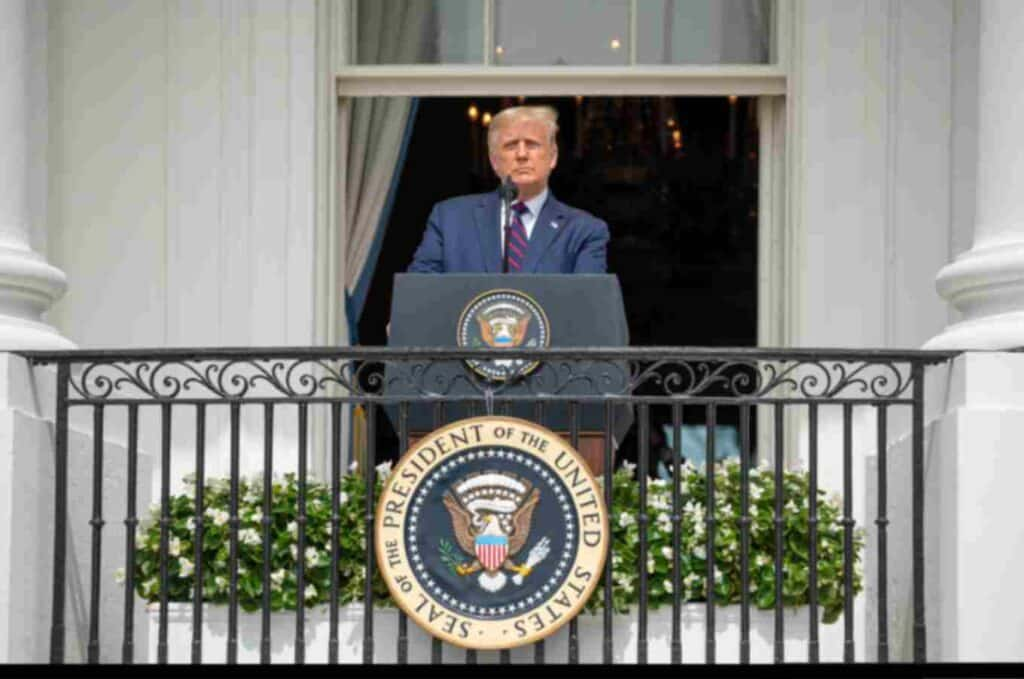In an era marked by electronic volatility and fiscal unpredictability, cryptocurrency has emerged as a beacon of potential financial refuge. This past week, while U.S. equity markets faltered in reaction to President Donald Trump’s aggressive tariff policies, Bitcoin, the pioneering digital currency, showcased remarkable resilience, maintaining its status as a viable alternative to conventional financial instruments. Such a trend highlights the evolving perception of Bitcoin as a sturdy store of value amidst global economic turbulence. Let’s delve deeper into how Bitcoin managed to weather the storm and what the future might hold for this digital asset.
Bitcoin Stands Firm Amid Market Turbulence and Tariffs
Understanding Bitcoin’s Resilience in Tariff-Laden Markets
During a challenging week for traditional equities, with major indexes like the S&P 500 and Nasdaq suffering significant declines, Bitcoin displayed a contrasting stability. While the S&P 500 plummeted by 8.21% and the Dow Jones fell by 7.4%, Bitcoin experienced only minor fluctuations, closing the week with a slight 0.49% decline. This disparity underscores Bitcoin’s potential as a hedge against market volatility, particularly when traditional financial systems face pressure.
Several factors contribute to Bitcoin’s robustness under such economic strain. As global trade tensions rise due to tariffs, fears of retaliatory economic policies grow, threatening the dollar’s dominance. This scenario often leads investors to seek refuge in alternative stores of value, such as Bitcoin, which has been increasingly referred to as “digital gold.”
Furthermore, the cryptocurrency market’s lack of direct exposure to tariff-sensitive industries such as manufacturing and technology plays a role in its stability. Bitcoin’s unique position outside the conventional financial ecosystem allows it to operate with reduced dependency on macroeconomic policies that adversely affect traditional market sectors.
Bitcoin as a Store of Value
The notion of Bitcoin as a “digital gold” is supported by market behaviors observed when traditional assets face downward pressure. For instance, during the recent economic tumult, gold prices soared to over $3,000, reflecting a typical flight to non-fiat assets. Bitcoin mirrored this trend with its resilience, suggesting investors are beginning to view it as a viable store of value capable of withstanding inflationary pressures induced by government policies.
Prospective Bitcoin Trajectories
Looking forward, Bitcoin’s trajectory appears promising, bolstered by a surge in investor confidence signaled through substantial withdrawals of Bitcoin from exchanges. In March alone, on-chain data indicated over 91,900 BTC were removed from trading platforms, a move generally associated with long-term holding strategies as investors transfer their assets to cold storage.
This shift towards holding suggests a bullish sentiment, with market analysts forecasting future price targets that could see Bitcoin reaching as high as $150,000. Such predictions are rooted in the asset’s continued decoupling from traditional economic factors and its growing acceptance as a permanent fixture in diversified investment portfolios.
Potential Market Risks
Despite its current steadiness, Bitcoin is not immune to risks inherent in the cryptocurrency space. Market analysts caution that external factors, such as regulatory changes and macroeconomic shifts, could impact its valuation. Therefore, while the outlook remains positive, investors are advised to stay informed about industry developments and maintain a diversified strategy.
Conclusion: Bitcoin’s Role in Modern Financial Portfolios
In the face of shifting economic landscapes and heightened market volatility, Bitcoin’s resilience has fortified its role as a protective asset in diversified investment strategies. By circumventing pitfalls that have ensnared traditional markets, Bitcoin not only survived but thrived, fostering investor trust and confidence in its enduring potential. As this digital currency continues to mature, staying informed and strategically invested could yield significant long-term benefits.
FAQs about Bitcoin and Cryptocurrency Investment
Is Bitcoin still a viable investment in today’s market?
Yes, Bitcoin remains a viable investment due to its increased adoption, inherent scarcity, and the potential for high returns. However, investors should diligently research and consider market dynamics before investing.
How do global economic policies affect Bitcoin’s price?
Bitcoin’s price is influenced by macroeconomic events, such as inflation and changes in trade policies. While its decentralized nature offers some protection, economic instability can drive investor interest, impacting its demand and price.
What strategies can enhance Bitcoin investment?
For successful Bitcoin investing, consider a diversified portfolio, continuous market education, and strategic entry and exit points. Leveraging tools like Finances Zippy for real-time data and insights can also aid in making informed decisions.

